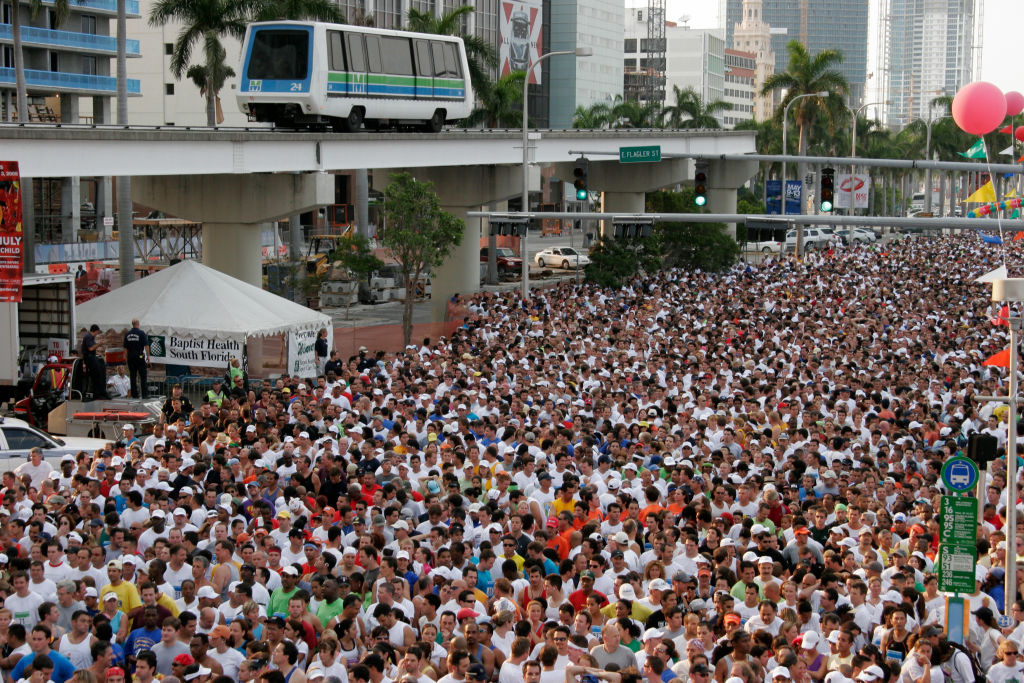The Obama administration is loosening the U.S. trade embargo on Cuba with a new round of regulations allowing American companies to sell to Cuba on credit and export a potentially wide range of products to the Cuban government for the first time, officials said Tuesday.
The changes are President Barack Obama's third attempt to spur U.S.-Cuba commerce despite an embargo that still prohibits most forms of trade with the island.
U.S. travel to Cuba has exploded since Obama and Cuban President Raul Castro declared detente in 2014. But U.S. hopes of building wider trade between American businesses and Cuba's private sector have been largely frustrated by Congressional reluctance to end the embargo itself and by the island's labyrinthine restrictions on imports, exports and private business.
Obama says he hopes to visit Cuba before he leaves office but a trip would depend on the progress being made in relations between the two countries. Tuesday's move appears designed to jumpstart commerce between the two countries and remove some of Cuba's biggest excuses for not opening its economy to trade with the U.S.
"Just as the United States is doing its part to remove impediments that have been holding Cubans back, we urge the Cuban government to make it easier for its citizens to start businesses, engage in trade, and access information online,'' National Security Council spokesman Ned Price said.
Among a host of other measures, the new regulations allow U.S. firms to offer Cuban buyers credit on sales of non-agricultural goods, addressing a longstanding Cuban complaint about a ban on credit.
The vast majority of Obama's new regulations have been aimed at spurring U.S. trade with Cuban entrepreneurs instead of with the state-run firms that dominate the economy. The Cuban government says that U.S. focus on private business is partly responsible for the island not opening its economy in response to the U.S. loosening of the embargo.
Local
The U.S. Commerce Department said Tuesday that it would now allow U.S. exports to Cuban government agencies in cases where it believed the Cuban people stood to benefit. It cited agriculture, historic preservation, education, food processing and public health and infrastructure as government-controlled sectors that it would not allow to receive goods from the U.S. on a case-by-case basis, potentially opening up a huge new field of commerce between U.S. business and the Cuban government.
"You would expect that this would open up a lot of areas where there should be enhanced trade,'' said James Williams, head of the anti-embargo U.S. group Engage Cuba. He said that while Obama's initial exceptions to the embargo were criticized for not reflecting a deep understanding of Cuba, the new regulations were much more attuned to the peculiarities of Cuba's state-controlled economy.
Cuban officials issued no immediate comment on the changes and state media made only brief mention of them in the first hours after the U.S. announcement.
Anti-Castro figures in the U.S. have long argued against Obama's opening with Cuba, saying it empowers the state rather than the Cuban people and Tuesday's announcement gave them ammunition.
"These regulations are more proof that the Obama Administration's intent has never been to empower the Cuban people but rather to empower the Cuban government's monopolies and state-run enterprises,'' said Republican presidential candidate Marco Rubio, a Cuban-American U.S. senator from Florida.
The new measures expand the different instances in which Americans can travel to Cuba without a specific permit, including filming movies and television programs, conducting market research and commercial marketing and organizing professional meetings and sports events.
While the embargo prohibits pure tourism, Obama's changes have largely turned the ban into a toothless honor system requiring travelers to self-report the purported legal reason for their travel to their airline or travel agent and then not engage in tourism on the island.
The new changes make the tourism ban even harder to enforce by expanding the number of credible reasons that an American could be in Cuba. The new measures also contain a number of technical changes designed to allow regularly scheduled flights between the U.S. and Cuba, a potentially massive change agreed upon by the two countries late last year.
Travelers now must go through third countries or take inconvenient and expensive charter flights. Regularly scheduled flights could bring hundreds of thousands more American travelers to Cuba every year.
___________________________________________
Amendments to the Cuban Assets Control Regulations (CACR) and Export Administration Regulations (EAR) effective Jan. 27, 2016:
Financing:
Removing financing restrictions for most types of authorized exports.
- Restrictions on payment and financing terms for authorized exports and reexports, except for agricultural commodities and agricultural items, will be removed, and U.S. depository institutions will be authorized to provide financing, including, for example, issuing a letter of credit for such exports and reexports. Currently, payment and financing terms for all authorized exports are restricted to cash-in-advance or third-country financing. Effective January 27, 2016, examples of permissible payment and financing terms for authorized non-agricultural exports and reexports will include: payment of cash in advance; sales on an open account; and financing by third-country financial institutions or U.S. financial institutions. OFAC is required by statute to maintain the existing limitations on payment and financing terms for the export and reexport of agricultural commodities and agricultural items.
Exports:
Additional amendments to increase support for the Cuban people and facilitate authorized exports.
- Certain Additional Transactions Authorized. OFAC is expanding an existing general license to authorize certain additional travel-related transactions as are directly incident to the conduct of market research; commercial marketing; sales or contract negotiation; accompanied delivery; installation; leasing; or servicing in Cuba of items consistent with the export or reexport licensing policy of the Department of Commerce, provided that the traveler’s schedule of activities does not include free time or recreation in excess of that consistent with a full-time schedule.
- Civil society. BIS will generally approve license applications for exports and reexports of commodities and software to human rights organizations or to individuals and non-governmental organizations that promote independent activity intended to strengthen civil society in Cuba.
- News gathering. BIS will generally approve license applications for exports and reexports of commodities and software to U.S. news bureaus in Cuba whose primary purpose is the gathering and dissemination of news to the general public.
- Telecommunications. BIS will generally approve license applications for exports and reexports of telecommunications items that would improve communications to, from, and among the Cuban people.
- Agriculture. BIS will generally approve license applications for exports and reexports of certain agricultural items (such as agricultural commodities not eligible for a license exception; insecticides; pesticides; and herbicides).
- Civil aviation safety. BIS will generally approve license applications for exports and reexports of items necessary to ensure the safety of civil aviation and the safe operation of commercial aircraft engaged in international air transportation, including the export or reexport of such aircraft leased to state-owned enterprises.
- Meeting the needs of the Cuban people. BIS is creating a case-by-case licensing policy that will apply to exports and reexports of items to meet the needs of the Cuban people, including exports and reexports for such purposes made to state-owned enterprises and agencies and organizations of the Cuban government that provide goods and services to the Cuban people.
Examples of exports and reexports eligible for this licensing policy are items for: agricultural production; artistic endeavor (including the creation of public content, historic and cultural works and preservation); education; food processing; disaster preparedness, relief and response; public health and sanitation; residential construction and renovation; public transportation; and the construction of infrastructure that directly benefits the Cuban people (e.g., facilities for treating public water supplies and supplying energy to the general public).
- A general policy of denial will still apply to exports and reexports of items for use by state-owned enterprises, agencies, or other organizations of the Cuban government that primarily generate revenue for the state, including those in the tourism industry and those engaged in the extraction or production of minerals or other raw materials. Additionally, applications to export or reexport items destined to the Cuban military, police, intelligence and security services remain subject to a general policy of denial.
Air Carrier Services:
Additional amendment to facilitate carrier service by air and with Cuban airlines.
- The entry into blocked space, code-sharing, and leasing arrangements to facilitate the provision of carrier services by air, including the entry into such arrangements with a national of Cuba, will be authorized.
Travel:
Expanding authorizations within existing travel categories to facilitate travel to Cuba for additional purposes.
- Temporary Sojourn. Certain personnel who are operating or servicing vessels or aircraft will be authorized to engage in travel-related and other transactions in Cuba to facilitate the temporary sojourn of aircraft and vessels as authorized by the Department of Commerce in connection with the transportation of authorized travelers between the United States and Cuba.
- Information and informational materials. OFAC will authorize travel-related and other transactions directly incident to professional media or artistic productions of information or informational materials for exportation, importation, or transmission, including the filming or production of media programs (such as movies and television programs); music recordings; and the creation of artworks in Cuba by persons that are regularly employed in or have demonstrated professional experience in a field relevant to such professional media or artistic productions. OFAC will also be expanding an existing general license to authorize transactions relating to the creation, dissemination, or artistic or other substantive alteration or enhancement of informational materials, including employment of Cuban nationals and the remittance of royalties or other payments.
- Professional meetings. OFAC will authorize by general license travel-related and other transactions to organize professional meetings or conferences in Cuba. The existing general license authorizes only attendance at such meetings or conferences.
- Public performances, clinics, workshops, athletic, and other competitions and exhibitions. Similar to the change to the professional meetings category, OFAC will authorize by general license travel-related and other transactions to organize amateur and semi-professional international sports federation competitions and public performances, clinics, workshops, other athletic or non-athletic competitions, and exhibitions in Cuba. OFAC also will remove requirements that that U.S. profits from certain events must be donated to certain organizations and that certain events be run at least in part by U.S. travelers.
- Humanitarian projects. OFAC will expand the list of authorized humanitarian projects to include disaster preparedness and response.



